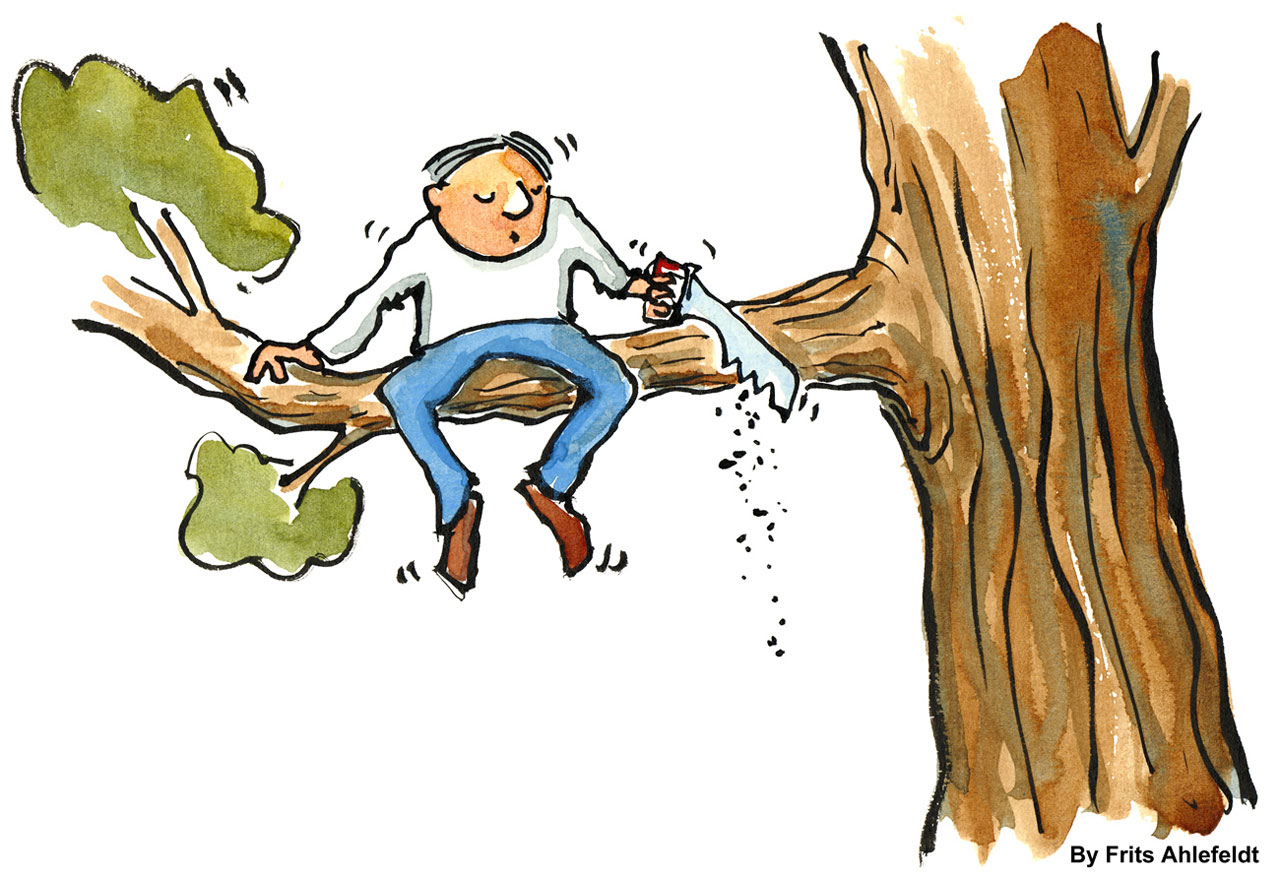Top 10 Signs of Self Sabotage – Episode 432

Self-sabotage is when we consciously or subconsciously stop ourselves from getting what we want. There are many reasons why we sabotage our progress and there are many ways that we keep ourselves from health, happiness and success. In this episode, Ted examines the top 10 signs that you are holding yourself back from the life that you want. If you are not moving forward to your goals as quickly as you would like, you might find this episode insightful, illuminating and helpful.
(Photo by Fritz Ahrefeldt)
We’re talking today about self-sabotage and what I mean by that is behaviors that keep us from our goals and accomplishments. So self-sabotage is when we consciously or subconsciously stop ourselves from getting what we want. This could be due to things we are doing or things we are not doing.
There’s a lot of different ways that we sabotage our success and happiness. Some we’ll be aware of, but other ways are subconscious behaviors, so this makes it more difficult to identify and address.
There are also many reasons why we sabotage our progress. A lot of these may stem from childhood, especially if we had a dysfunctional childhood. Other reasons might be fear of success or failure, low self-esteem, lack of confidence and most certainly, fear.
In this episode I’d like to focus on the top 10 signs that you are holding yourself back. There’s a lot more, but in my view, these are the biggies so as we go through these, make a mental checklist of which of these apply to you. According to Psychology Today, behavior is said to be self-sabotaging when it creates problems in daily life and interferes with long-standing goals. The most common self-sabotaging behaviors include procrastination, self-medication with drugs or alcohol, comfort eating, and forms of self-injury such as cutting.
- Feeling not deserving. I did a podcast on this recently, Episode 426 titled What you Deserve Has Got Nothing to Do with It. Check that out. Feeling not deserving would also include imposter syndrome, that sneaky feeling that you are faking it and the fear that someone is going to discover that you’re a fraud. If you have subconscious programming that you should not have success or happiness, then your mind will do what it can to keep those things from you.
- Focusing on what is not working or not right. It’s the feeling that there is always something wrong. Nothing ever works. Nothing ever goes right for me. You can’t trust anybody. What’s the point? I know and have worked with people that hold this perspective and they are always focused on the negative. This is deadly and it’s a way to let yourself off the hook because nothing’s going to work out anyway. This is toxic to yourself and others and incredibly damaging to your ability to create happiness.
- Procrastination. We all procrastinate, but when procrastination becomes chronic, then it’s most likely a self-sabotaging behavior. Procrastination is the habit of putting off what you need to do and what is important for you to do until you are in crises mode, or you are missing deadlines. One study was conducted on student procrastination in academic environments. Scientists found one common factor in procrastination involved a lack of self-regulation which means an inability to control one’s emotions, resulting in being easily distracted. The opposite would be self-discipline.
- Comparison of self to others. Compare and Despair is the title of my podcast episode 357 so check that out. There’s can be a huge feeling of futility when we look at other people, see what they have accomplished, then beat ourselves up for not being them. It’s hard to be motivated when we’re feeling bad about ourselves, hence, self-sabotage. That’s when we start convincing ourselves that there’s something wrong with us because everyone else seems to be able to do what we can’t.
- Refusing to ask for help. This is a very sneaky form of self-sabotage disguised as self-reliance or not needing anybody’s help. Other rationalizations might be “I can’t count on anybody, nobody can do it as good as me, they won’t understand what I need, I’ll look weak, it’s too much hassle to ask for help, or I can do it on my own in my own way dammit!” The truth is, when you ask for help, you are holding yourself accountable to the person that is helping you and that can be scary and feel vulnerable so it’s easier not to ask for help.
- Picking fights or initiating conflicts with valued partners and loved ones. One surefire way to sabotage yourself is to chase away or repel anyone who might support you or encourage you or, again, hold you accountable. This is more common than you might think. It’s a way to stop your progress by blowing up your path with resentment, anger, indignation and to keep you alone, unsupported and mired in negative thoughts and emotions.
- Avoiding or withdrawing from others.
Instead of picking fights, you can just avoid or withdraw from those who could support you or encourage you. Or, after picking enough fights and creating enough drama and conflict, you can just say “Screw ‘em” and estrange yourself from everybody else. This can be a difficult one to see, because when we’re doing this, so much of our energy goes into shaming and blaming that it’s hard to look at ourself and our motives. - Negative self-talk and extreme self-criticism.
This is easy to see in our behavior, it’s obvious to others, and next to procrastination, it’s one of those self-sabotage behaviors that’s easy to fall into and get stuck in. You can get in the habit of just tearing yourself down and beating yourself up all day long. It’s easy to see how this can be a self-reinforcing negative behavior right? The more you do it, the worse you feel, the worse you feel, the more you do it, and nothing productive gets done.
9. Making excuses or blame shifting. Blame-shifting is where one person will avoid accountability for something they said or did, and instead deflect the fault onto someone else. “It’s their fault that I’m not where I want to be, it’s the economy, the government, the politicians, my spouse, my parents,” on and on. Making excuses as to why we can’t do what we need to do to accomplish what we want to accomplish or do what we want to do keeps the focus off of us and allows us to not take responsibility.
10. Substance abuse, overspending, or “overdoing it” in other ways including overeating. Any type of self-medication can keep us from feeling or looking at those issues that we need to be aware of and overcome. This could also include a general lack of attention to one’s health allowing us to use lack of energy or illness as reasons to not put time and effort into our own success and happiness.
So those are the biggies in my opinion.
There’s a self-sabotage quiz you can take to help you see what your patterns are. It’s at the Psychology Today website:
Here are a couple of articles that might be helpful:
https://www.verywellmind.com/why-people-self-sabotage-and-how-to-stop-it-5207635
https://www.happierhuman.com/self-sabotaging/
There’s a lot to talk about when it comes to self-sabotage but the first step to addressing it is always awareness. You need to know there’s a problem before you can address it so I hope this episode was helpful to you.
Listen to this podcast episode now:
Want to catch up on previous episodes?
Click Here >
If you feel that self-sabotage is holding you back and you are ready to do something about it, you should know that hypnotherapy can be one of the most powerful ways to turn your challenges into possibilities. I invite you to book a complimentary consultation with me so that we can explore if working together is your best path forward. To request you complimentary consultation, go to https://Tedmoreno.com/contact and I’ll get back to you in 48 hours to schedule that.
“Self-sabotage is when you drill holes in your own ship because the trip is going so well that you feel uncomfortable because someone or something taught you that you don’t deserve smooth sailing.” By author Jon Acuff
Thank you for being here, Ted




